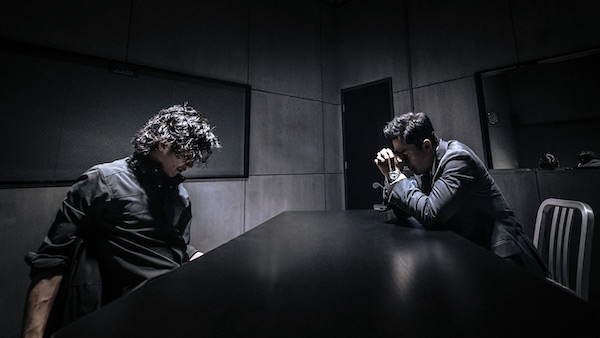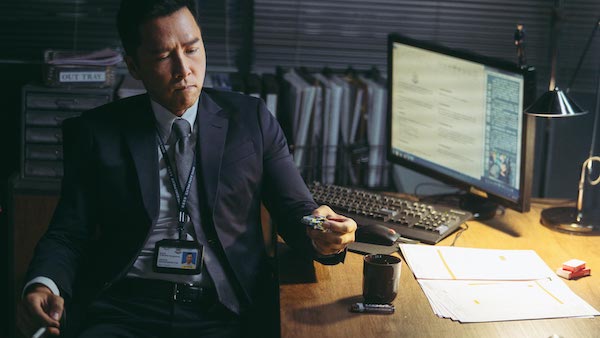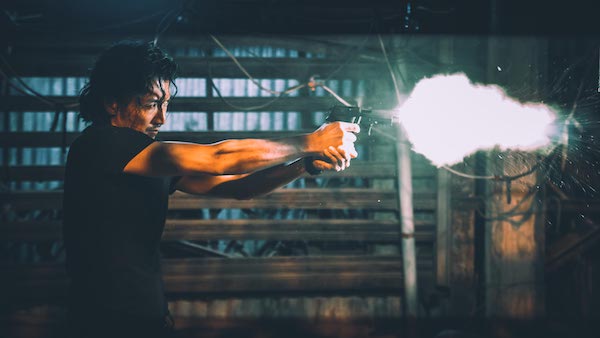A first-rate action thriller, Raging Fire pits dedicated cop Donnie Yen against Nicholas Tse’s gang of killers in a story of betrayal and revenge. It’s sadly the last film from director Benny Chan, who died of cancer in 2020.
Raging Fire has a sprawling storyline that unfolds over several years. Yen plays Bong Cheung, a cop who resists pleas to look the other way, angering superiors who want him to bend. As a result, Bong and his team are kicked off a police sting against Wong Kwun, a gangster they’ve been tracking for years.
In a well-executed scene set in a shopping mall, both the gang and the police are massacred by a third team of black-masked crooks. It is a luxury to watch action this skilled and precise, with stunts that are simply beyond the abilities of most Hollywood productions. Benny Chan and Donnie Yen (who is credited as action choreographer and director) take the time to explain the geography of the scene, cutting to a police command center filled with surveillance monitors to show the mall’s layout, before unleashing bullets and blows.
Viewers know that Tse’s character, Ngo, is e leader of the masked gang. They soon learn that Ngo and his team were policemen betrayed by higher-ups after following orders to torture a suspect in order to rescue a kidnapped financier. Bong is the one who turned them in.
The rest of the film is an intricate path to a showdown between Bong and Ngo. First Bong tracks down drugs to Guai’s gang, nestled deep within a slum. In an extraordinary action scene, Bong fights off dozens of guards before flinging himself out a window after Guai.
In one brief, seconds-long shot, Yen shows why he is possibly the best martial arts performer on screen. Guai kicks Bong’s leg, knocking him to his knee. Regaining his feet, Bong goes after Guai, this time stepping over and around his next kick. The moves aren’t just flawless, they’re part of a larger tapestry of action that pulls viewers along.
Sequences like that are what makes Raging Fire such a delight. The action is stuffed with jaw-dropping moves executed one after the other, the fights ranging from rooftops to sewers. The car chases up the ante. Even in an era of wirework and CGI, the car and motorcycle stunts are breathtaking.
The dramatic scenes, on the other hand, feel stuck in a previous generation of films about macho cops bravely maintaining integrity in a corrupt system. Even the frequent flashbacks evoke 1980s Hong Kong movies. Yen in a determined performer, Tse a more natural one, but neither actor can entirely pull off the screenplay’s emotional demands.
Benny Chan barrels through anyway, persevering in his vision. There are call-outs to John Woo’s The Killer and Johnnie To’s Breaking News, among many other inspirations, but Chan maintains his own distinctive style.
Chan was behind several action hits, including Jackie Chan’s Who Am I? and The White Storm with Louis Koo and Nick Cheung — films marked more by forward momentum than psychological subtlety. There is an honesty to Chan’s work, a drive that glories in what film can accomplish. He will be missed.
Raging Fire is streaming now on Hi-Yah! and will be available November 23 on Digital, Blu-ray and DVD from Well Go USA Entertainment. Photos courtesy Well Go USA.
Official trailer: https://youtu.be/_hL0sAde1DA





